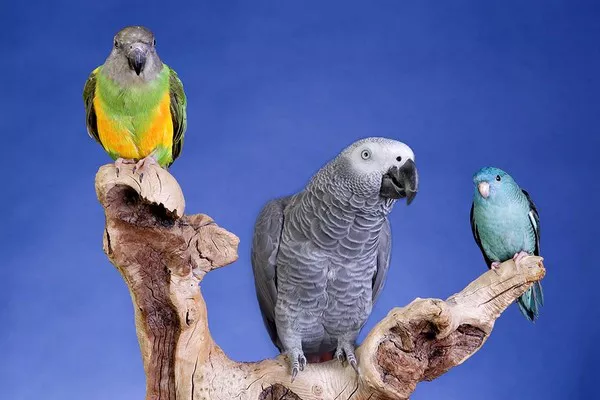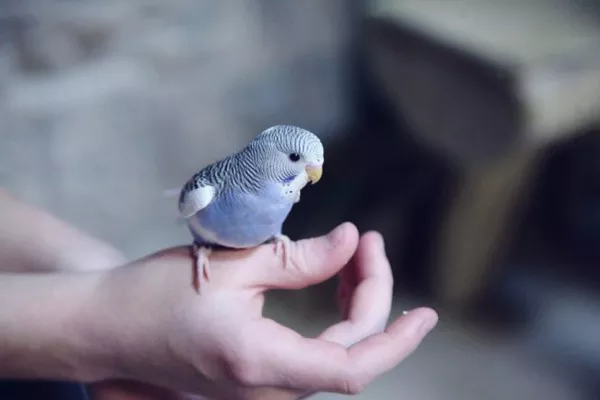Among the vast array of avian species, African Grey Parrots stand out for their exceptional vocal abilities. These intelligent and social birds are renowned for their capacity to mimic human speech and various sounds with astonishing accuracy. In this article, we will delve into the fascinating world of how African Greys talk, exploring their vocal mechanisms, learning processes, sheding light on this captivating aspect of their behavior.
African Grey Parrots’ Vocal Mechanisms
1. Vocal Apparatus: Like other parrots, African Greys have a specialized vocal apparatus that enables them to produce a wide range of sounds. This apparatus includes the syrinx, a complex structure located at the base of the trachea where the bronchial tubes meet.
2. Mimicry Skills: African Greys possess an incredible ability to mimic sounds and human speech due to the structure of their vocal cords and brain. Their syrinx allows them to modulate sounds and imitate various pitches, tones, and rhythms.
3. Observational Learning: African Greys are skilled observers and learners. They listen attentively to their surroundings, including human speech and other sounds, and then attempt to replicate those sounds through vocalization.
4. Contextual Understanding: African Greys demonstrate a remarkable ability to associate certain words and phrases with specific contexts or situations. They can often use appropriate words to request food, express emotions, or interact with their human companions effectively.
The Learning Process of Talking African Greys
1. Early Exposure: To encourage talking abilities in African Greys, early exposure to speech and sounds is crucial. Young birds raised in environments with frequent human interaction are more likely to start mimicking speech at an early age.
2. Repeating Sounds: Talking African Greys often start by repeating simple sounds or words they hear frequently. Consistent repetition of words or phrases helps them practice and refine their vocalization skills.
3. Positive Reinforcement: Positive reinforcement, such as treats, praise, and affection, can be highly effective in encouraging African Greys to continue practicing their vocalizations and trying new sounds.
4. Patient Training: Patient and consistent training is essential when teaching an African Grey to talk. Repetition and patience will help reinforce their understanding of specific words and their proper usage.
Mystery of Their Remarkable Vocal Abilities
1. Vocal Variety: African Greys’ vocal repertoire goes beyond speech mimicry. They can also imitate environmental sounds, household noises, and even other bird calls. Understanding the range of sounds they can produce adds to our appreciation of their vocal talents.
2. Emotional Expression: African Greys are not just mimicking words; they can also convey emotions through their vocalizations. They may mimic laughter, crying, or even mimic their owners’ tones when expressing affection or frustration.
3. Individual Differences: Just like humans, African Greys have individual differences in their vocal abilities. Some may be more adept at mimicking speech, while others excel at imitating sounds or displaying emotional expressions.
4. Communicative Abilities: African Greys use vocalizations as a means of communication with their human companions and other parrots. Understanding their communication signals can strengthen the bond between parrots and their owners.
Addressing Common Misconceptions
1. Understanding vs. Repetition: While African Greys can imitate human speech remarkably well, it is essential to differentiate between true understanding and simple repetition. While they may say certain words in context, they might not comprehend their meaning.
2. Limited Vocabulary: African Greys can learn an impressive vocabulary, but it is essential to recognize that their vocabulary size may vary based on individual capabilities and training efforts.
Conclusion
African Grey Parrots’ ability to talk is a captivating aspect of their behavior, and understanding their vocal mechanisms and learning process enhances our admiration for these intelligent and social birds. Their vocal repertoire, emotional expression, and individual differences contribute to the uniqueness of each parrot‘s vocal abilities. Patient training, early exposure to speech, and positive reinforcement can foster talking skills in African Greys, providing rewarding and interactive experiences for both parrot and owner. By appreciating the rich vocal capabilities of African Grey Parrots and addressing common misconceptions, we can develop stronger bonds with these remarkable avian companions and marvel at their extraordinary vocal talents.
Related Topics:


























